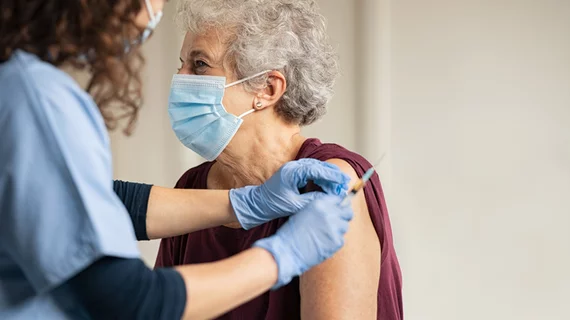Risk of heart damage higher after COVID-19 than vaccination
Myocarditis is associated with approximately 2.7 cases per 100,000 vaccinated individuals, according to a new study from the Clalit Research Institute in Israel and Harvard University. Meanwhile, the condition is associated with approximately 11 cases per 100,000 individuals with a confirmed COVID-19 diagnosis.
These findings, published in the New England Journal of Medicine, are based on real-world data from more than 2.1 million people. The study’s authors believe it to be the largest analysis of its kind to date.
Researchers explored the risk of 25 potential adverse effects in vaccinated and control groups of more than 880,000 people. They then explored the risk of those same adverse events among more than 173,000 unvaccinated COVID-19 patients and more than 173,000 unvaccinated healthy adults. Data came from an integrated health record database developed by specialists at the Clalit Research Institute.
Overall, the team reported, myocarditis, swollen lymph nodes, appendicitis and herpes zoster were the four adverse effects moderately associated with COVID-19 vaccinations.
Many more adverse effects—including cardiac arrhythmias, kidney damage, pericarditis, pulmonary embolism, deep vein thrombosis, myocardial infarction and stroke—were associated with an unvaccinated person being diagnosed with COVID-19. None of those effects were associated with receiving a COVID-19 vaccine.
“This study sheds light for the first time on the significant side effects of the coronavirus vaccine,” Doron Netzer, chief medical officer of the Clalit Research Institute’s community health division, said in a statement. “Since this is a more comprehensive analysis based on electronic medical records, these are more reliable assessments than those published to date which have relied on voluntary active reporting systems.”
“In all studies of vaccine safety, a major challenge is to ensure that those we are comparing to identify the vaccine’s side effects are similar in the other characteristics that may predict whether they will experience these side effects,” added Marc Lipsitch, DPhil, a professor at the Harvard T.H. Chan School of Public Health. “This is especially hard in the context of a rapidly growing, age-targeted vaccine campaign. Clalit’s extraordinary database made it possible to design a study that addressed these challenges in a way that provides tremendous confidence in the inferences that come out of the study.”
Read the full analysis here.

